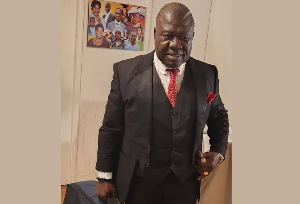Meeting in Kribi a fortnight ago, Pamol Board members validated an increase in the budget of Pamol Plantations from 11 billion FCFA in 2014 to near FCFA 16 billion in 2015.
The Interim General Manager of Pamol, Chief Mekanya Charles Okon is credited by Board Members for the optimism that Pamol will return to profitability in 2015. Chief Mekanya gave his impressions after the Board Meeting.
The meeting went on very well and the major thing is that the budget for 2015 was approved. And the members of the board from all indications were quite happy with the budgetary prediction that was made – from 11 billion FCFA in 2014 to close to 16 billion FCFA this year partly because of the investments which we intend to make, especially the opening of new plantations, replanting project and also the famous Bakassi oil palm project which is what government thinks we can do for this area. That is what has pushed this major increase which we think could help the company to progress.
There are plans to acquire a new factory for pamol plantations. How advanced are those plans?
There was a program signed between PAMOL and three ministerial departments – the Ministry of finance, the Ministry of Agriculture, and the Ministry of Land- to revamp the company by injecting resources from their various ministries.
One issue which came up is that the company has to buy a new mill. We have made a lot of contacts with suppliers from Malaysia and they have given us a proforma of about FCFA 7.7 billion. So we are on it. What they want is sovereign guarantee.
They are prepared to supply the mill provided the government guarantees the loan. It has gone quite far. We are ready for that. The price of palm oil sold by Pamol Plantations is homologated by the state. With the rising cost, how are you able to sail through these troubled waters to keep the company afloat?
That is the principal concern not only of Pamol, but palm oil producers. That has been our headache. Since 2008, the price per litre has been fixed at FCFA 500. It has not changed. We have put a lot of pressure on the Ministry of Commerce to see how they could help.
They have been quite adamant, saying that this is a product of primary consumption for the general public, so it will be difficult for them to increase the prices. But curiously, we of the industrial sector sell at FCFA 500, but the middlemen come and take this oil at FCFA 500, and sell it for FCFA 800. If you go to any market, the price of palm oil is FCFA 800/ litre.
We are only encouraging the middlemen to make money for themselves. They import duty free and they kill the local market because those of us who produce palm oil locally are unable to sell.
One of our major customers has paid money since June to lift oil from us. But since June, they have been unable to lift it up because their tanks are full and I think that we have to ask the government to give us a leeway to layoff, because that is the only solution.
But I’m not sure that’s the best thing to do. But if you have to pay your bills, then the only thing to do is first of all to layoff and reduce your cost. I think there has to be some synergy between the ministries. All we just want is if the government can allow producers of palm oil to just increase FCFA 200. Our production cost is about FCFA 520 and we are selling at FCFA 500, so right from the inception, we are making a loss.
The government set aside quite some money this fiscal year to be disbursed to Pamol. How is the money coming in?
We know the problems the government has, to face security problems in the North and other issues which are preoccupying the government now. Out of the FCFA 2.1 billion which was supposed to be given to Pamol, so far, we have been able to have just FCFA 400 million. The Minister of Finance is taking measures. I even had some talks with the Director General of the Treasury and we hope things will be better.
You took your staff to Kribi. What did you intend to achieve with that?
At all times, management should try to make an effort to improve on the capacity building of the workers and change the mentality of the workers in terms of how they perform in their areas of work. And to do that, you either go through formal training schools or you go make informal training. I have worked in SOCAPALM before and I had a lot of interaction with HEVECAM and I saw how they operated, I was so elated with the way the system of work operates there.
So, I try to inculcate this system into my workers, those of PAMOL. I felt that it was an opportunity for them to go and see how people operate elsewhere; because you can’t compare one thing. You have to compare more than one thing – going to the field and meeting the realities in the field, they will learn one or more things for themselves and come back and implement what I think we want to achieve.
I was so pleased because when they came back, they told me their experiences. They told me how they were so surprised that when they went to the factory, and their presence there was like a non-event, because no worker turned to them to ask any questions. That is what I wanted them to see – how people have to be focused on their jobs. I think I achieved my goal of their trip here.
How do you see the future of Pamol Plantations?
Despite all huddles, I think that we are optimistic there will be a bright future for the company. We have gone through very difficult times. We have looked at our achievements and we’ve seen that from very heavy deficits, we have come close to breaking even. We think that in 2015, we’ll make some profit.
Just by some simple management, we have done everything to put things in place with the inputs from the government. When you put in fertilisers, you increase production and you manage the place well by good plantation practices, we think that Pamol has a future in this country.
Infos Business of Wednesday, 24 December 2014
Source: Cameroon Journal













